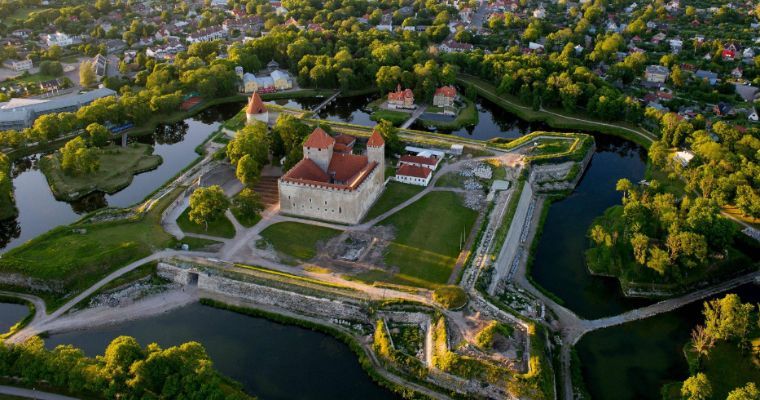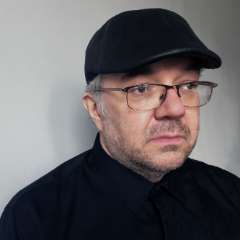To many, Estonia might in itself seem rather remote. But the lake-filled nation, which counts as a part of its land more than 1,500 islands, is home to summer music festivals that could make even the most map-savvy cultural tourist forget they were ever on a beaten path.
In particular, the Pärnu Music Festival, the Saaremaa Opera Festival, the Haapsalu Early Music Festival, the Birgitta Festival and the Leigo Lake Music Festival are all held in breathtaking settings befitting their summer of 2022 offerings, which will include Beethoven and Lutosławski, Tchaikovsky and Verdi, Bach and Haydn and Estonian composers perhaps lesser known than their western counterparts. Summers are mild in Estonia with daytime temperatures usually staying below 20°C and afternoon thunderstorms not uncommon. The best way to travel around the country is by renting a car which makes all the festivals easily accessible, even Saaremaa where the car can go onto a ferry.
While some of Estonia's more unusual festivals take full advantage of the beautiful countryside, the Pärnu Music Festival (13-22 July) is held indoors, in spaces including an 18th-century church, a traditional concert hall and various spa hotels. Just one and a half hours from Tallinn, Pärnu is the summer capital of Estonia, dominated by a long sandy beach, a beautiful promenade and a pretty medieval town. The historic summer resort was one once frequented by none other than Dmitri Shostakovich. It was at Pärnu, in fact, that a young Paavo Järvi, with his father Neeme, the festival's co-founder, met the famous composer in 1973.
Paavo Järvi will lead the Estonian Festival Orchestra this year in a concert of Tchaikovsky, Lutosławski, and Max Bruch (16-17 July) with celebrated guest violinist Joshua Bell. The season will represent a homecoming and a reunion for the Järvi family: patriarch Neeme Järvi will celebrate his 85th birthday by conducting the opening night concert (13 July) featuring, appropriately enough, the Homeland Melody composed by Heino Eller (1887-1970), often considered to be the founder of contemporary symphonic music in Estonia. The concert will also include Mozart’s playful Eine Kleine Nachtmusik and Beethoven’s magnificent Grosse Fuge Op. 133. Neeme’s other maestro offspring, Kristijan Järvi, will lead the Baltic Sea Philharmonic in a concert of Philip Glass’s music, celebrating the New York minimalist’s 85th year. (15 July).
Those interested in Viking history should venture to the far West of Estonia onto the island of Saaremaa, as ship burials were discovered nearby which throw new light on these ancient warriors. After years of study the artifcacts are now on display in the local museum. Meanwhile, nature lovers can enjoy some fabulous walks, thousands of migratory birds and wild orchids in Viidumäe Nature Reserve and Vilsandi National Park. Storytelling will be at the fore at Saaremaa Opera Days (20-24 July). In addition to performances of Gounod's Romeo and Juliet (20 July) and Verdi's Traviata (22 July), there will be a production of Rimsky-Korsakov’s one-act Mozart and Salieri paired with a ballet performance of Mozart's Requiem. That 21 July “Night With Mozart” double header will be followed by another theatrical dedication to another past master. “Waiting for Chopin”, by the Silesian Opera under the direction of Michal Znaniecki, sets a group of Chopin’s young, female students in a salon, playing his works for each other and playing games with the audience while waiting for their teacher to arrive. The show, which premiered during Chopin Year 2010 and has been performed internationally, attempts to elucidate on how little we know the beloved composer by imagining those around him (including a cameo by George Sand). That production and the rest of the festival will take place in the courtyard at the center of Kuressaare Castle, which dates back to the 14th Century.

Antiquity and authenticity are the modus operandi at the Haapsalu Early Music Festival (28-31 July) on the Baltic coast, and Haydn will be the centerpiece. While Shostakovich may have summered in Estonia, Haydn spent his off-seasons in Fertöd, in present day Hungary. Concerto Copenhagen will present a program of his ‘summer symphonies’ (29 July), playing three of the Fertöd works—Symphony no 43 in E-flat Major, “Mercury” (1771), Symphony no 44 in E minor, “Mourning” (1772), and Symphony no 47 in G major, “Palindrome” (1772) – in chamber orchestra settings. Haydn will also be on hand in a concert by the Estonian string quartet M4GNET, who will play his String Quartet Op. 20, no. 1 in E flat major along with Beethoven’s String Quartet in D major, Op. 18 no. 3 and Mozart's String Quartet no. 15 in D minor (30 July). French harpsichordist Jean Rondeau will play Bach's Goldberg Variations as they were meant to be heard on the 29 July, and a selection of Bach's cantatas and motets will be presented by the Chamber Choir Voces Tallinn and Haapsalu Festival Baroque Orchestra on opening night. The British Tenebrae Consort will offer a program of medieval chant and polyphony to close the festival (31 July). Concerts take place in the 14th Century Haapsalu Dome Church and churches and halls around the seaside town.
The Birgitta Festival (6-14 August), held in the historic ruins of the 15th-Century Bridgettine Convent in the capital city of Tallinn, a UNESCU capital of music, will this year include works rarely heard in Estonia – or anywhere else, for that matter. The Tallinn Philharmonic Society will open the festival with a completed version of the opera Lalli, left unfinished more than 30 years ago by Veljo Tormis, one of Estonia’s most important contemporary composers and a master of choral work. Tormis passed away in 2017 at the age of 86, and his Lalli (based on the Eino Leino play of the same name) has now been completed by Rasmus Puur, 30 this year and himself a choral composer. Puur followed the original libretto and incorporated ten minutes of Tormis's music for this world premiere. Also on the books, a chamber opera by Finnish composer Pehr Henrik Nordgren (1944-2008) – The Black Monk, based on works by Chekhov – which will receive its third performance ever. Sibelius’ only opera, The Tempest, will at last get its Estonian premiere nearly 100 years after it was first staged in Copenhagen. Kristjan Järvi will lead the Baltic Sea Philharmonic in the production. The festival will be brought to a close with Finnish composer, accordionist and powerhouse performer Kimmo Pohjonen’s Uniko, a concert of primal music with the Tallinn Chamber Orchestra. In ways humorous or profound, and likely enough both, the work promises to personify much of this remote and vibrant part of the world.
A single night in Otepää brings our fantasy tour to a close. An island stage in the midst of a suite of manmade lakes, nestled in beautiful natural surroundings, is the setting for the Leigo Lake Festival (13 August). Neeme, Paavo and Kristjan Järvi – who all celebrate milestone birthdays this year – will reconvene to lead the Estonian National Symphony Orchestra and Estonian National Male Choir in a long night including works by Brahms, Sibelius, Smetana, Tchaikovsky, Wagner and the Russian romantic Aleksandr Glazunov. The homeland will be represented with two works by Veljo Tormis, including Three I Had Those Words of Beauty for male choir and flute (1962), and a pair by other important Estonian composers: Villem Kapp (1913-1964), whose popular heroic choral setting Northern Coast (1958) will be heard; and an aria by the popular Eino Tamberg (1930-2010). The latter constitutes another Järvi reunion of a sort, not just with father and sons present. Neeme Järvi conducted Tamberg’s Celebration Fanfares in New York City in 1995 to mark the 50th anniversary of the United Nations, and at Leigo Lake they’ll meet again. The daylight hours are left open for exploration and there are sleeping accommodations on the grounds. Come nightfall, bonfires, fireworks and thousands of candles will light the way and fill the sky, making for an unforgettable night in one of Estonia's secret sonic gardens.
If you're craving glorious music and beautiful landscapes, Estonia should definitely be on your summer 2022 bucket list.
Click here to find all summer festival events in Estonia.
This article was sponsored by the Estonian Tourist Board


